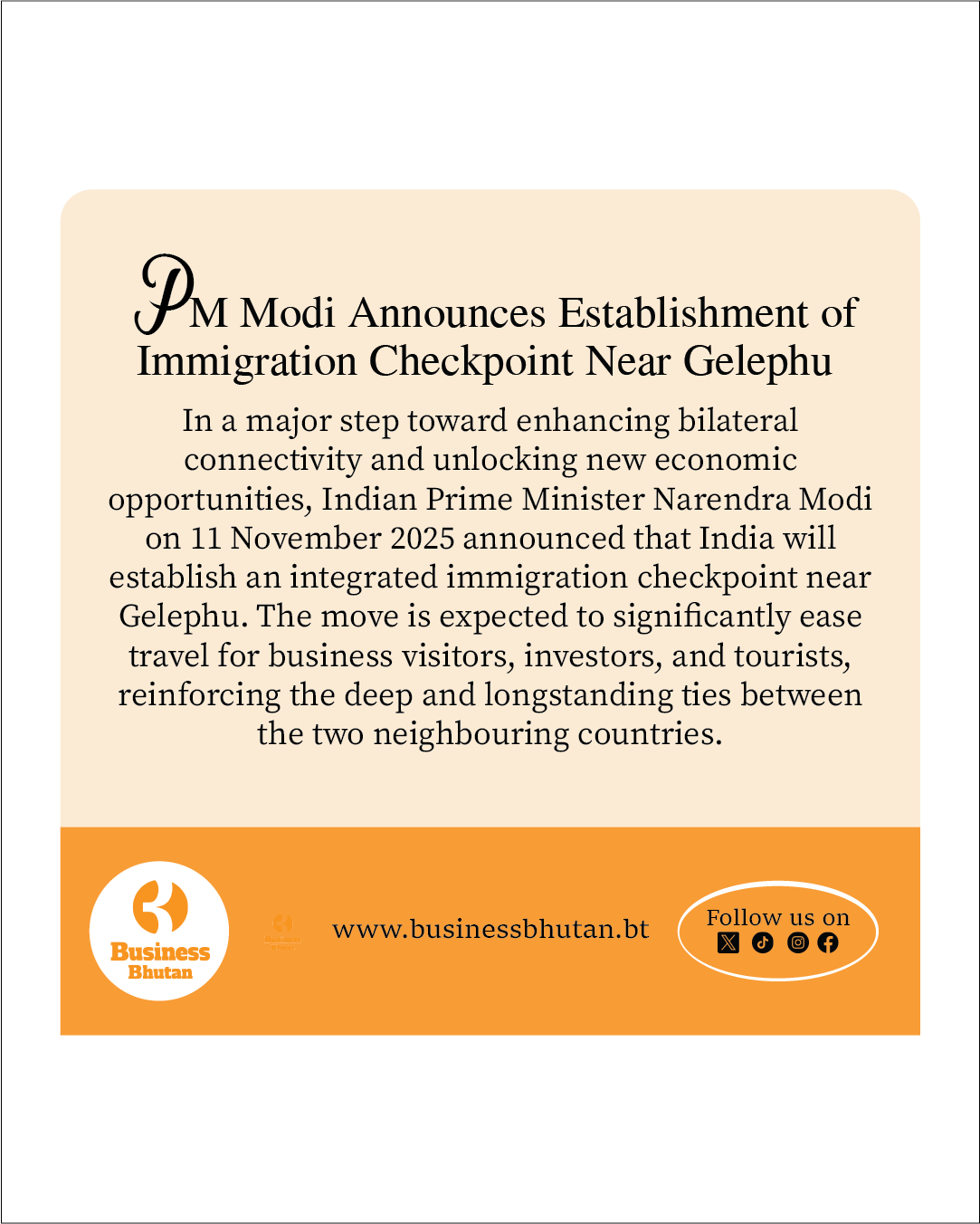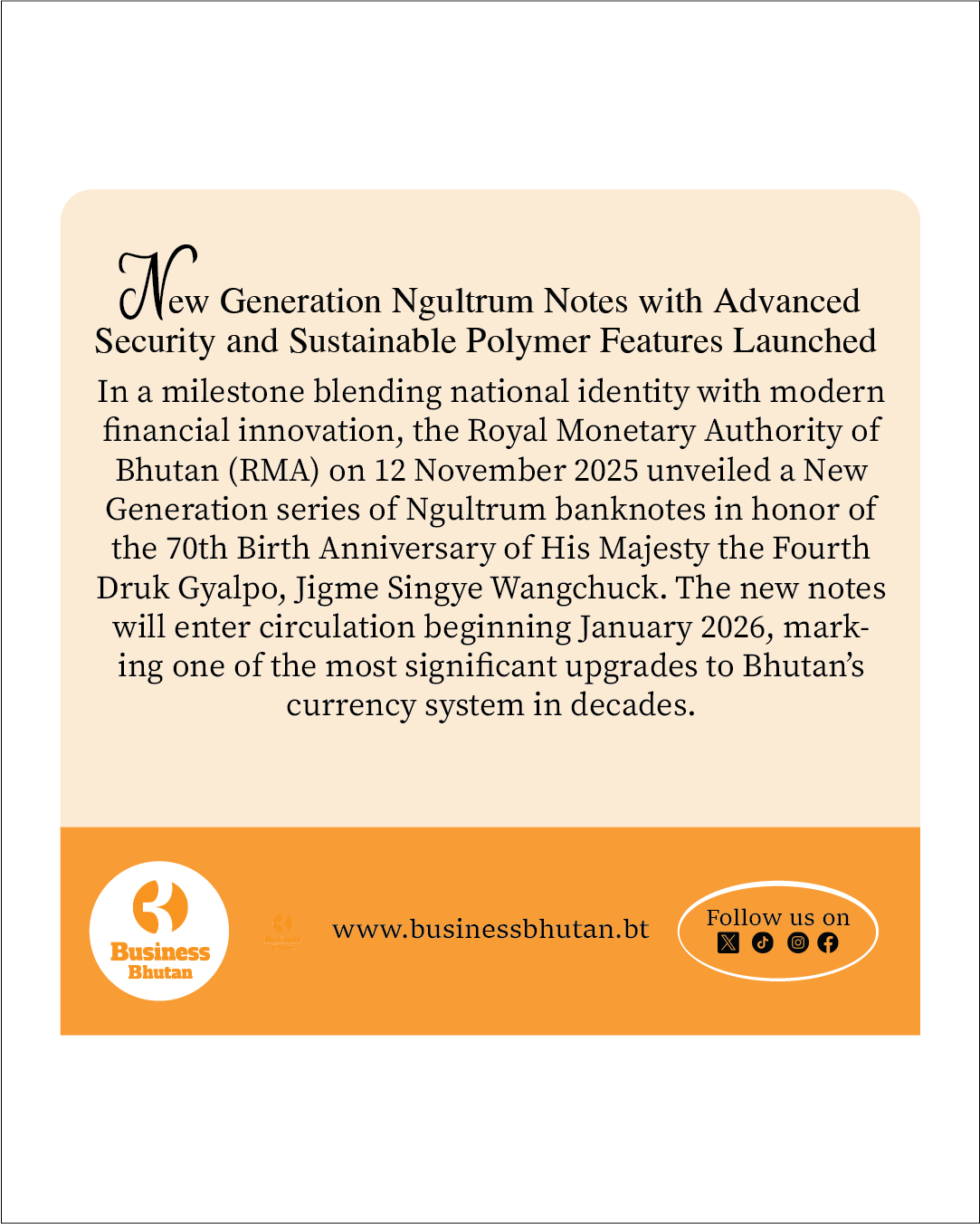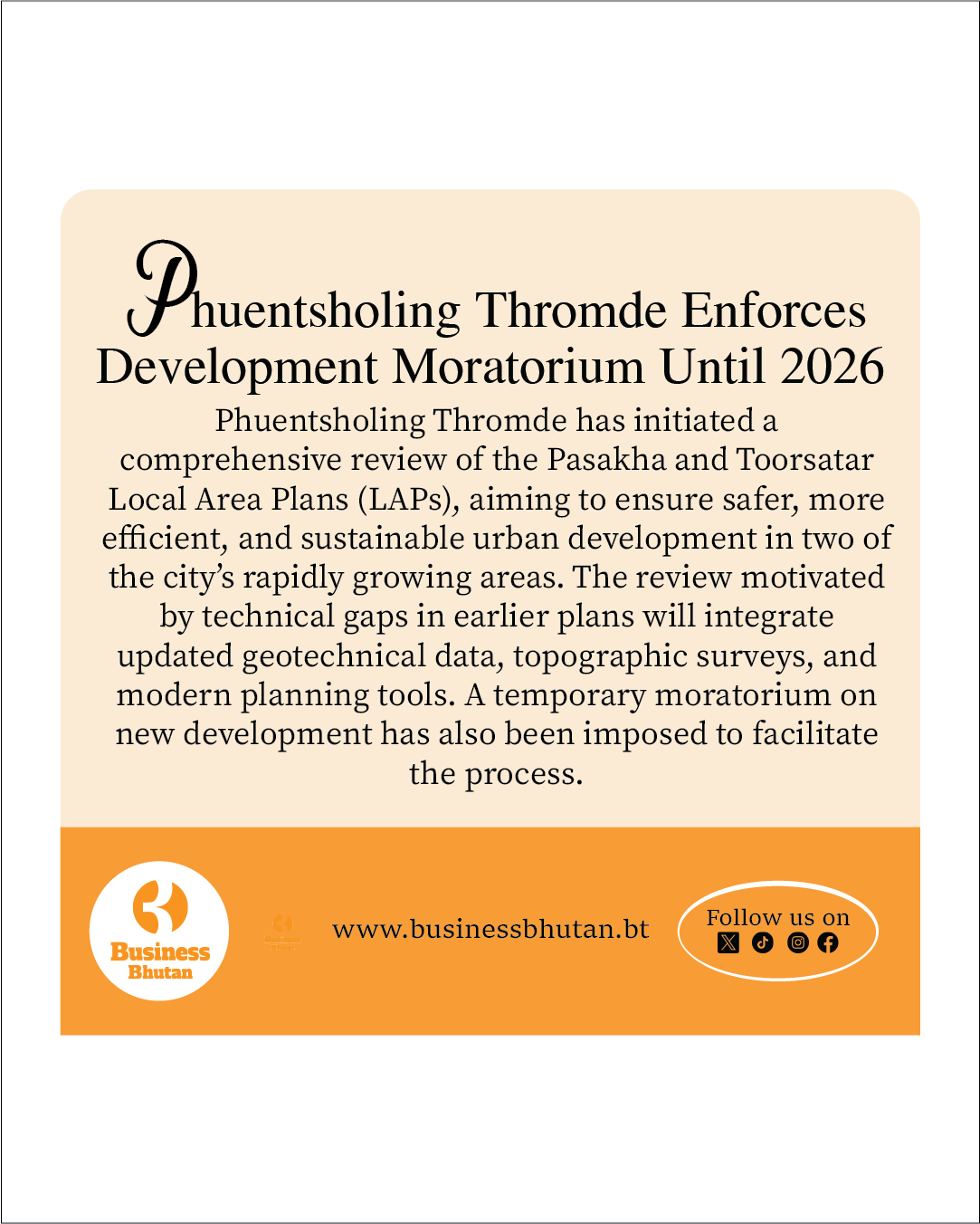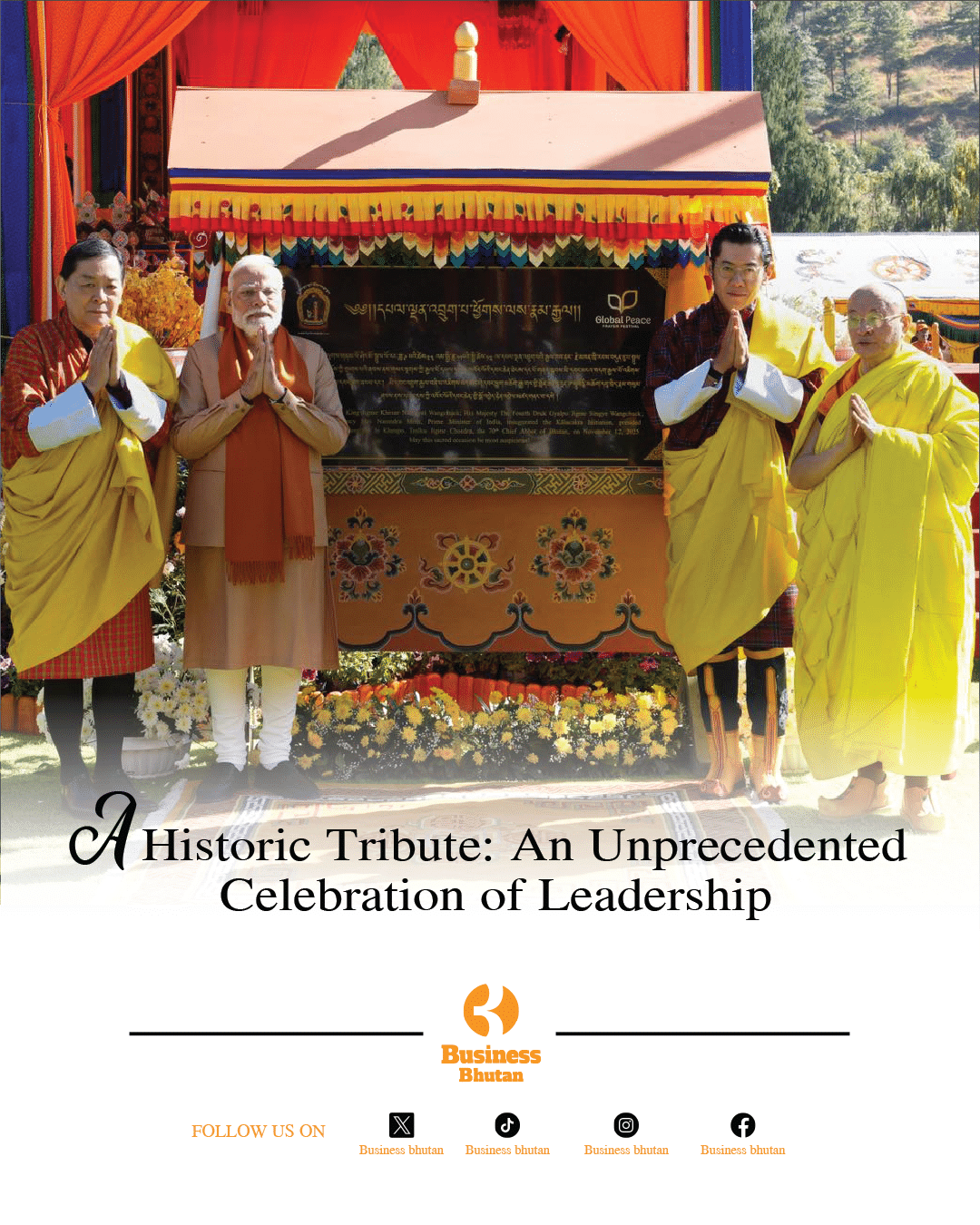In a major step toward enhancing bilateral connectivity and unlocking new economic opportunities, Indian Prime Minister Narendra Modi on 11 November 2025 announced that India will establish an integrated immigration checkpoint near Gelephu. The move is expected to significantly ease travel for business visitors, investors, and tourists, reinforcing the deep and longstanding ties between the two neighbouring countries.
Addressing a massive gathering at the Changlimithang Celebration Ground during his two-day state visit to Bhutan, PM Modi said the checkpoint would streamline cross-border movement and support the emerging economic potential of the Gelephu region, particularly as Bhutan develops the ambitious Gelephu Mindfulness City.
“I’m making another important announcement from this platform today. In the near future, India will be building an immigration checkpoint near Gelephu to further facilitate visitors and investors,” PM Modi said, underscoring India’s commitment to strengthening seamless mobility and supporting Bhutan’s economic vision.
The Prime Minister also reaffirmed India’s intention to link Gelephu and Samtse to its expansive railway network. Once operational, the new rail corridors are expected to transform Bhutan’s connectivity to Indian markets, lowering transport costs for Bhutanese farmers and industries while improving the efficiency of trade and logistics.
PM Modi highlighted ongoing progress in border infrastructure development, noting that both countries are working closely to enhance road networks, trade gateways, and facilitation systems to complement new connectivity initiatives.
India’s Ambassador to Bhutan, Sandeep Arya, said the proposed immigration checkpoint would “significantly ease travel for investors and visitors, especially those engaging with the Gelephu Mindfulness City initiative.” He added that improved access through the Guwahati Airport, including the widening of travel corridors, would make business travel “shorter, smoother, and more efficient.”
Randhir Jaiswal, Spokesperson and Additional Secretary (XP) of India’s Ministry of External Affairs, emphasized that the immigration facility planned at Darranga, Assam—together with the Inland Waterways Terminal at Jogighopa and upcoming rail links—will collectively enhance cross-border mobility and stimulate new investment flows into Gelephu’s economic zone.
Reinforcing the enduring friendship between the two nations, PM Modi reiterated that the development paths of India and Bhutan remain deeply interconnected. He referenced India’s earlier pledge of Rs 10,000 crore for Bhutan’s 13th Five-Year Plan as a reflection of this strong partnership.
According to the Indian Embassy in Thimphu, of the total commitment, Rs 7,000 crore has been allocated for Project Tied Assistance (PTA), Rs 1,000 crore for High Impact Community Development Projects (HICDP), Rs 1,500 crore for the Royal Government’s Economic Stimulus Programme (ESP), and Rs 500 crore as Programme Grant.
“This funding is being used across every major sector—from roads to agriculture, from finance to healthcare—improving the ease of living for Bhutanese citizens and supporting the nation’s development priorities,” PM Modi said.
The Prime Minister also highlighted India’s sustained support in ensuring a reliable supply of essential goods to Bhutan, along with growing collaboration in digital payments. He reaffirmed India’s commitment to expanding the Unified Payments Interface (UPI) within Bhutan and enabling Bhutanese citizens to use UPI seamlessly during visits to India.
PM Modi’s announcements underscore a renewed momentum in India–Bhutan relations, rooted in trust, friendship, and a shared vision for prosperity. The establishment of an immigration checkpoint near Gelephu marks another strategic milestone as the two countries work together to strengthen connectivity, promote trade, and bolster emerging economic hubs that promise long-term mutual benefit.
Meanwhile, the checkpoint will serve as a dedicated entry point for international visitors, investors, and professionals traveling into the Gelephu region. With GMC envisioned as a transformative economic hub blending innovation, wellness, culture, and environmental harmony, improving access is seen as essential to its long-term success.
One of the biggest advantages of the new facility will be reduced travel time for international passengers arriving through Guwahati Airport. Currently, travelers face multiple layers of administrative procedures when entering the Gelephu area. The new checkpoint will streamline this process, offering a faster and more efficient route directly into the Mindfulness City.
The checkpoint is also expected to enhance investor confidence. Reliable, well-managed border infrastructure signals long-term stability and mutual commitment between Bhutan and India—an important factor for businesses considering high-value investments in technology, hospitality, health, education, and spiritual retreat facilities within GMC.
The checkpoint will also complement the proposed railway links connecting Gelephu and Samtse to India’s extensive rail network. Together, these cross-border initiatives will form a seamless mobility corridor that strengthens logistics, enhances trade, and supports the economic zones planned within GMC.
As India and Bhutan continue to deepen their partnership in connectivity and economic cooperation, the new immigration checkpoint stands out as a strategic investment in the future of GMC – supporting its growth, opening new avenues for investment, and positioning Bhutan as an emerging destination for innovation and mindful living.
Sangay Rabten
From Thimphu















